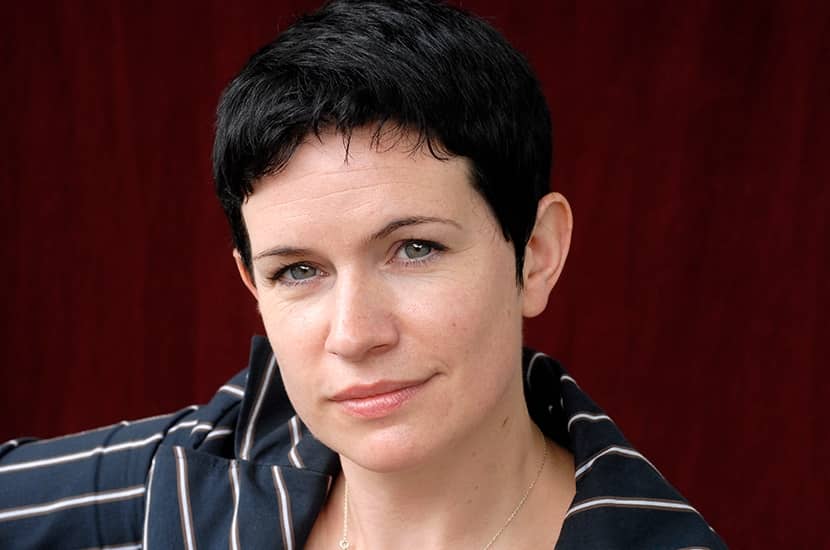We had been dreading it like (forgive me) the plague: the inevitable onslaught of corona-lit. Fortunately, the first few titles out of the gate have been in capable hands. Zadie Smith reflected on lockdown in Intimations, a slim volume of personal essays; the virus featured in Ali Smith’s Orwell Prize-winning Summer; and Sarah Moss imagines a lockdown hike gone awry in her forthcoming novel The Fell.
The twice Booker-nominated novelist and short story writer Sarah Hall also felt compelled to address the calamity, rising in the dark to write before home schooling her daughter during lockdown. ‘I’m not saying I was particularly equipped,’ Hall explained in a press release. ‘But some part of me — a kind of first responder — wanted to work.’
In Burntcoat, Hall gives the pandemic a near-dystopian twist. Edith Harkness is a successful sculptor who contracted ‘novavirus’ — a deadlier version of Covid-19 — in her thirties. Now 59 (‘old for carriers’), she is dying of a relapse. In her final days, she looks back on her life: a childhood spent with her mother, Naomi, who never fully recovered from a stroke; an abusive relationship at art school; her artistic ascendance after an apprenticeship in Japan.
At the centre of the story is her recollection of an intense love affair with Halit, a Turkish-Bulgarian restaurateur, with whom she locked down at Burntcoat, her studio and home. Their private passion, where ‘other worlds cease’, is juxtaposed with the growing threat outside: as the disease spread, the public descended into looting and violence. When Halit came down with the virus and there was no hospital bed to be found, Edith nursed him before falling ill herself. The book is narrated in the second person, addressed to Halit’s spirit.
Halit serves as the inspiration for Edith’s final commission, a national memorial for the million lost to the disease and, it’s implied, those still to come (her name is engraved along with the other victims). Edith feels ambivalent about the project, thinking that the design ‘cannot possibly comfort, or reparate’. Her technique is inspired by the Japanese art of shou sugi ban — charring wood to make it waterproof and thus more durable. The metaphor is clear: adversity is meant to make one stronger. ‘I’m the wood in the fire,’ she concludes. ‘I am burnt, damaged, more resilient.’
Edith’s mother, an author, likes to say (in an echo of Joan Didion): ‘Those who tell stories survive.’ Can stories ‘make sense of a disordered world?’ Edith wonders. Is it too soon to attempt to make sense of the pandemic? Ian McEwan once said: ‘It could well be that the great 9/11 novel — if there ever is one — will be written halfway through this century.’ Only time will tell if there will be a Great Pandemic Novel. But the pleasure of Hall’s prose — visceral, intimate — is a balm to our collective wound. ‘There is grief, its long cortège,’ she writes. ‘The whole world joins and walks.’






Comments